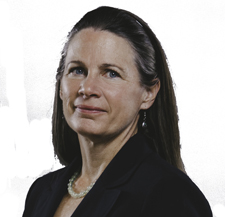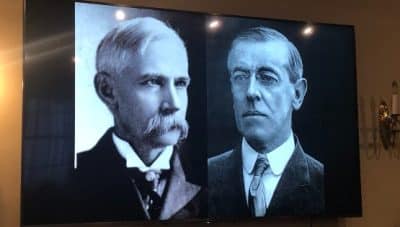
As usual, the real problem is the state, not religion. When government at all levels consumes over 40% of GDP, and debt service on past government expenditures – even at the municipal levels, swallows up 10-70% of tax funded “revenue,” we observe that the state has superceded free society. Private and religious charity can’t begin to approach the tax-funded “benefits” the state doles out daily. Private enterprise can barely save and invest in capital improvements and employees because of the horrendous tax burden business owners face from local, state and federal revenue collectors. Religion, as the founders viewed it, was part of society, not the state. In America today, we find that there is very little society left – most of what we deal with daily is the state!
The founders knew (as do modern politicians) that religion could be used for vote gathering, for handing out state benefits, and for controlling, punishing and expelling minorities. Colonies, and later states, established “official” religions, demanding citizens attend Sunday services, and prohibiting members of certain religions from holding public office.
The Constitution prohibited any federally established religion, and by the late 1800s, state constitutions had eliminated language that mentioned an official state religion. At this same time and through the early 1900s, the Third Great Awakening across Protestant Christianity was focused on social reform, and actively sought to influence the state – to merge religious values with law. Christian social reformers both promoted Prohibition and aided in the passage of the 16th Amendment of the Constitution establishing a federal income tax. George Will explains (as do more scholarly authors like Ken Burns) how the government was unwilling to lose tariffs on the alcohol business without some alternative means of revenue. The price of Prohibition was the federal income tax.
Predictably, when Prohibition was repealed by the 21st Amendment, Section 2 of that amendment allowed states to maintain prohibition of a kind, if they so chose. Thus the birth of the ABC Store – another example, some might argue, of a state established religious value (not to mentioned a significant revenue generator for various state governments, like Virginia’s).
It’s ironic that Obamacare – opposed by most Catholic and Protestant churches in Virginia – was held to be “constitutional” on the basis of the federal government’s right to tax. Religious leaders and faith-based organizations must understood their own organization’s culpability in strengthening the state in this way, in past eras for religious purposes.
Organizations that complain about invocations before government meetings have had nothing to say about ending the ABC Store system in Virginia, or repealing the 16th Amendment. One may presume that these organizations also value federal mandated health care purchases, and consequential tax increases. The growth of the state does not concern these groups, because they practice their own religion – statism.
Complaints by groups like Freedom from Religion ought to be focused on restoring our liberty in all areas, including the right to pray when and how we want, and reducing the pervasive, expensive and destructive power of the state over all aspects of society. Furthermore, religious leaders in American should be actively aligned in championing individual liberty and freedom from state mandates that force us to behave in ways counter to our religions and moral beliefs. They should consistently oppose state resource grabs that deprive private charitable and religious organizations from delivering aid and assistance in their sphere of influence. The Freedom from Religion group should stand with churches and synagogues everywhere in demanding that the Office of Faith Based Initiatives, established by George W. Bush, be eliminated and no tax dollars be redistributed to religious charities. The White House Office of Faith Based Initiatives compromises religious values and undermines the independence of churches and religious organizations – and reduces religious liberty.
So the real problem is how and whether and to what extent the state makes the rules and controls our every moment. I’ve been to Protestant invocations before public and private meetings that claim Jesus is the Son of God and those that claim Jesus is God. I’ve listened to prayers for guidance from above that appear nondenominational. I’ve been as inspired by the words of Baptist preachers, Catholic priests, as I have by curmudgeons like Mark Twain.
Prayer, as Jesus instructed, could be conducted in private, often silently and ideally, constantly. The power of prayer, the right to pray anywhere or anytime, can never be deprived of any person by the state. More than likely, the Roanoke County local officials will decide to use non-denominational prayers, or rotate speakers in an attempt to represent every possible religious view, or hold a moment of silence, or just give up.
The best outcome for this “crisis” of governance in Roanoke would be for the government meetings to start each meeting with a selection from the writings of a Virginian Founding Fathers. The conclusion of Jefferson’s first inaugural address on March 4, 1801, is excellent. Councilmen and supervisors, repeat after me:
Relying, then, on the patronage of your good will, I advance with obedience to the work, ready to retire from it whenever you become sensible how much better choice it is in your power to make. And may that Infinite Power which rules the destinies of the universe lead our councils to what is best, and give them a favorable issue for your peace and prosperity.
Good will, term limits, peace and prosperity – and submission to a higher power – all encompassed in a short invocation! By quoting past Presidents before our meetings, we may pray in public and avoid statist critiques, but we may also actually learn something about how a constitutional republic is supposed to operate.










